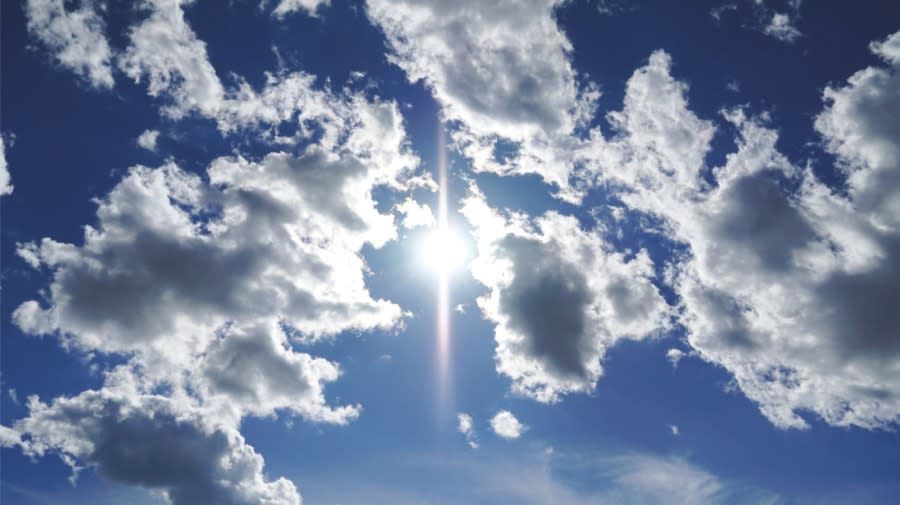Energy & Environment — Report says ozone layer on track to recover

A new U.N. report says earth’s ozone layer is slowly mending. Meanwhile, a House Democrat condemns a proposed rule on public lands, and New England faces an electricity crunch.
This is Energy & Environment, your source for the latest news focused on energy, the environment and beyond. For The Hill, we’re Rachel Frazin and Zack Budryk. Someone forward you this newsletter?
Thank you for signing up!
Subscribe to more newsletters here
The latest in politics and policy. Direct to your inbox. Sign up for the Energy and Environment newsletter
Ozone layer on track for recovery: UN report
The ozone layer — the atmospheric shield that prevents harmful ultraviolet light from reaching the Earth’s surface — is on track to recover, United Nations (U.N.) scientists said on Monday.
What are they saying? In the report, which is issued once every four years, the U.N. said the ozone layer has shown recovery and will return to its 1980 levels over the next several decades.
The ozone layer prevents exposure to ultraviolet light, which can cause skin cancer and other health problems. It can also harm animals and plants.
Human use of ozone-depleting substances — like the chemicals used in refrigeration and fire suppression — were harming the protective barrier, prompting global concern for years.
What changed? In 1987, countries including the U.S. agreed to the Montreal Protocol, an international agreement to reduce the consumption and production of ozone-depleting substances.
The new report says that this agreement was particularly important to the current path toward restoration, which it said will occur for most of the world by 2040.
However, recovery around the Arctic and Antarctic will take longer — by 2045 and 2066 respectively, according to the report.
The report specifically noted that China had decreased its emissions of certain substances in recent years, contributing to the overall decline.
Read more about the update here.
Grijalva blasts public land ownership provision
The top Democrat on the House Natural Resources Committee blasted a provision in the proposed House rules package that would make it easier to transfer public lands, calling it an indication the new GOP majority intends to pursue a broadly pro-industry agenda.
The proposed rules package, made public Friday, includes a provision streamlining the process by which ownership of federal lands passes from the federal government to states or localities. The provisions are similar to those passed during the 115th Congress, the last session in which Republicans controlled the House, Rep. Raúl Grijalva (D-Ariz.) told The Hill on Monday.
What they’re saying: “The whole process of this rule is to devalue public land,” Grijalva said. “You’re basically handing [land] over to the industries, whichever they might be … and all the protections that are in place under federal law, in terms of siting those and getting permission for those [lands] disappears, and that changes the complexion of it completely.”
In 2019, after Democrats won control of the chamber, they passed a rules package undoing the earlier rule.
“Republicans are committed to ensuring that federal land management best reflects the needs of the local people closest to these lands, and this provision is not a giveaway to private industry like Mr. Grijalva is claiming,” a spokesperson for presumptive Natural Resources Committee Chair Bruce Westerman (R-Ark.) told The Hill in an email.
“It only applies to conveyances to other government entities and will ensure that the House can process legislation that will actually benefit the federal government by reducing maintenance costs and increasing tax revenues.”
Read more about the controversy here.
New England facing skyrocketing electricity rates
New Englanders are contending with some of the highest electricity rates in the country this winter as they weather the transatlantic ripple effects of a global gas crunch.
Residents of New England’s six states have thus far enjoyed a relatively mild winter without rolling blackouts. But skyrocketing rates — fueled by natural gas price surges and the war in Ukraine — are taking a toll on a region accustomed to cranking up the heat.
“Natural gas prices have not been this high in New England since 2008 — before the fracking revolution, mortgage crisis and Great Recession caused energy prices to crash,” Tanya Bodell, an energy adviser and partner at consulting firm StoneTurn, told The Hill.
New England began to face fierce competition from the European Union over liquefied natural gas (LNG) supplies after Russia starting curtailing pipeline gas to the EU in response to sanctions over Moscow’s invasion of Ukraine.
Last year, with an uncertain winter on the horizon, the EU became a high-stakes bidder in the global race to stockpile LNG. And the bloc’s success in staving off an impending energy crisis has hit hard across the Atlantic, where residents rely heavily on gas to both power and heat their homes.
On-land natural gas pipelines can reach “peak delivery capacity during a subset of the coldest days in winter” — a challenge New England has typically tackled by seeking relief through LNG deliveries, Bodell explained. Now, however, demand for the resource “has skyrocketed in response to sanctions on Russian energy,” she added.
Read more from The Hill’s Sharon Udasin.
WHAT WE’RE READING
With stroke of his pen, Ohio governor defines natural gas as green energy (Cleveland.com)
Hundreds of deserted oil and gas wells in Southern California could soon get plugged (The Los Angeles Daily News)
Power outages across Sacramento affect over 300,000 customers (The Sacramento Bee)
Washington state just started capping carbon emissions. Here’s how it works. (Grist)
EPA inks deal to clean up Keystone spill (E&E News)
That’s it for today, thanks for reading. Check out The Hill’s Energy & Environment page for the latest news and coverage. We’ll see you tomorrow.
For the latest news, weather, sports, and streaming video, head to The Hill.
